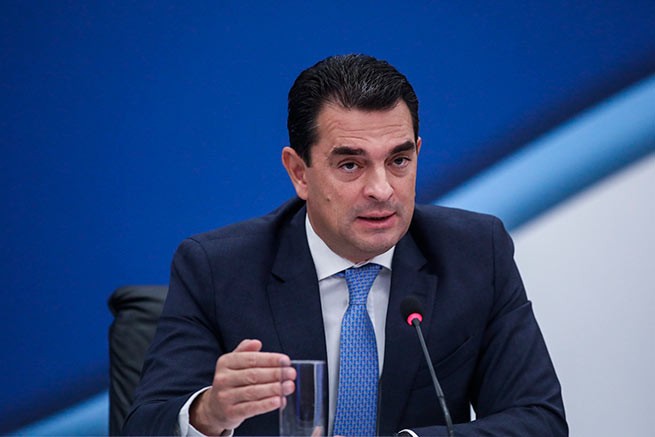Deputy Minister of Health Mina Gaga announced new instructions for the use of a monoclonal drug in patients with coronavirus.
The minister emphasizes that the criteria have been expanded by the committee and are provided for both hospitalized and patients with mild or moderate illness.
Information for my fellow physicians who wish to prescribe monoclonal antibodies for patients with covid-19: the criteria have been expanded. “A prerequisite for obtaining a prescription is the inclusion of a molecular test in the covid register,” the deputy minister said.
As highlighted, the experts discussed monoclonal antibodies at their last meeting and decided to expand the criteria for prescribing the drug so that as many patients as possible can receive it immediately.
As “Russian Athens” previously wrote, the Ministry of Health announced at the end of November that hospitals in Greece would begin injecting monoclonal antibodies to patients with Covid-19, primarily to patients at high risk of infection belonging to vulnerable groups.
Recently, the country received 2000 doses of monoclonic antibodies. According to Deputy Minister of Health Mina Gaga, the use of the drug will take place in hospitals with the greatest experience. Priority patients are reported to be:
with a weakened immune system; those who have received a transplant; patients with neoplasm; pregnant in the last three months.
Patients must be 12 years of age or older and have tested positive for coronavirus using a PCR test within the past 5 days. Monoclonal antibodies are used as a single dose, but this requires a hospital, since they are administered intravenously and require hours of medical supervision for possible allergic reactions.
The American biotech company announced on Monday that a single dose of Regen-COV treatment will prevent 81.6% of infections for at least eight months. This means that synthetic antibodies can provide long-term protection for immunocompromised patients who do not respond to vaccinations. Therapies are prescribed by doctors who also initiate the application process. Monoclonic antibody therapy will be provided at the following ten public hospitals:
Athens: Sotiria, Sismanoglu. Thessaloniki: AHEPA, Papageorgiou. General hospitals in Alexandroupoli, Heraklion, Ioannina, Larisa, Lamia, Patras / Rio. Sources: amna, tvxs.gr
Recently, the country received 2000 doses of monoclonic antibodies. According to Deputy Minister of Health Mina Gaga, the use of the drug will take place in hospitals with the greatest experience. Priority patients are reported to be:
with a weakened immune system; those who have received a transplant; patients with neoplasm; pregnant in the last three months.
Patients must be 12 years of age or older and have tested positive for coronavirus using a PCR test within the past 5 days. Monoclonal antibodies are used as a single dose, but this requires a hospital, since they are administered intravenously and require hours of medical supervision for possible allergic reactions.
The American biotech company announced on Monday that a single dose of Regen-COV treatment will prevent 81.6% of infections for at least eight months. This means that synthetic antibodies can provide long-term protection for immunocompromised patients who do not respond to vaccinations. Therapies are prescribed by doctors who also initiate the application process. Monoclonic antibody therapy will be provided at the following ten public hospitals:
Athens: Sotiria, Sismanoglu. Thessaloniki: AHEPA, Papageorgiou. General hospitals in Alexandroupoli, Heraklion, Ioannina, Larisa, Lamia, Patras / Rio. Sources: amna, tvxs.gr.
Source link






More Stories
Shocking report from Japanese scientists: “Cancer deaths increase sharply after mass Covid vaccination”
Study: Scientists have discovered why children are more susceptible to coronavirus
22 arrests and confiscations took place in Italy and other EU countries in the case of "covid" EU funds (video)